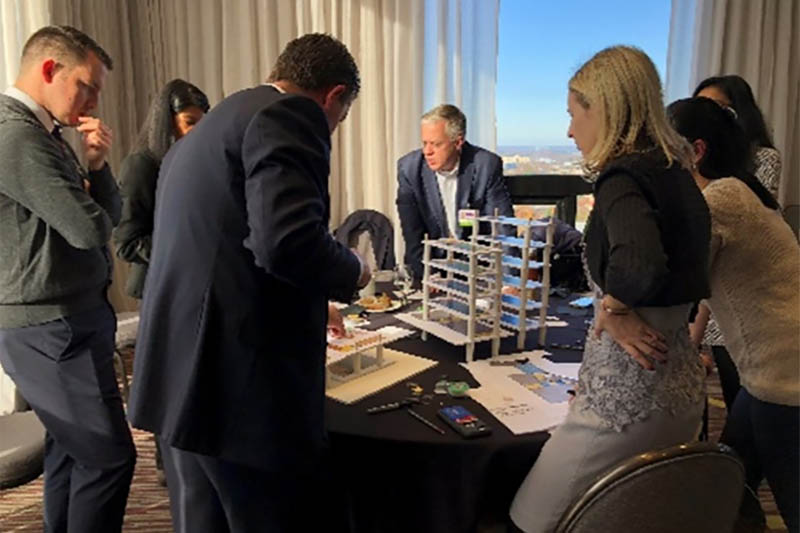
Emory University Hospital PFAs participating in facility design planning
Advisors are patients and family members who partner with health care professionals to improve health care quality, safety, equity, and experience. Advisors share their insights and perspectives, identify strengths and opportunities for improvement, and collaborate in implementation and evaluation of changes.
If you are just getting started and don’t know where to begin, think of any process or project undergoing review or that is in the planning phase. Invite and prepare patients and families to participate in a work group. If you have an established patient and family advisory council or experience with advisors, continue to search for opportunities to expand their involvement and roles. IPFCC offers resources to guide you on establishing a successful patient and family advisory program.
Below are examples from the field that showcase how organizations are working with patients and families to improve health care.
Emory Healthcare
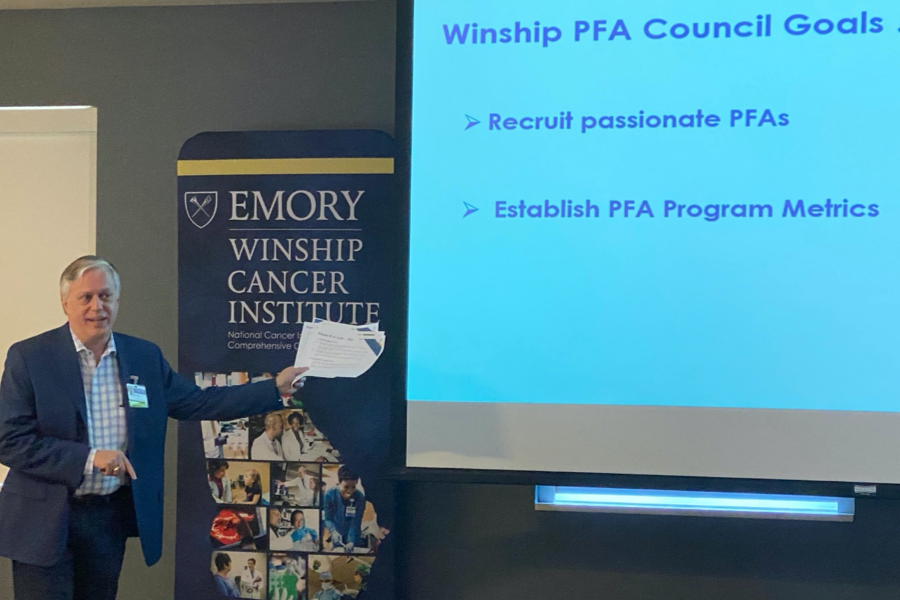
Dave Hauenstein, PFA, presenting at Winship Cancer Institute’s PFA retreat
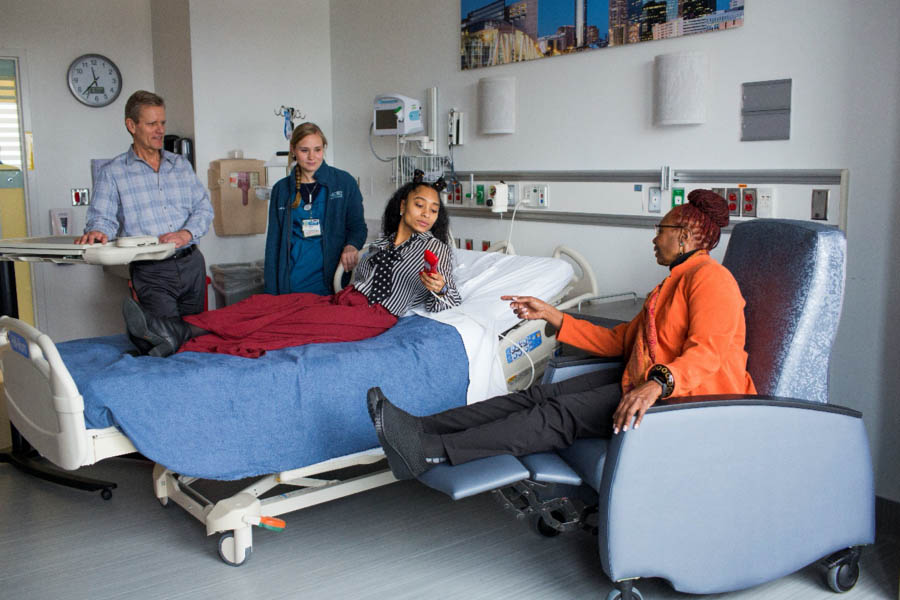
PFAs evaluating furniture for new Emory University Hospital Tower
(L to R: Ed Steinman, Hallie Marino, Arielle Alyssa Brown, and Bari-Ellen Ross)
Children’s Specialized Hospital

A goal of the 2024 Family Advisory Council Workgroup at Children’s Specialized Hospital in New Brunswick, NJ, was to create a short video series titled, Confessions of a Caregiver, honest conversations about caregivers’ experiences caring for their loved ones. The Family Advisory Council members drew on their own experience raising their children with special health care needs to share comforting words of wisdom, positive tips that helped them cope during a challenging time, or a positive tip that helped them learn how to embrace their child’s disability. The videos completed include: Strategies to Overcome Challenges; Acceptance of the Journey; and The Balancing Act of Being a Parent. You can view the videos here.
Cincinnati Children’s Hospital Medical Center

Cincinnati Children's has developed welcome videos for patients and families who speak languages others than English. Spanish, Arabic, and Nepali are languages most frequently spoken by the patient population served by the hospital. Patient and family partners, who speak Spanish, Arabic, and Nepali, participated in the development of these videos. The above picture is from the filming of the Nepali video.
UR Medicine Golisano Children’s Hospital
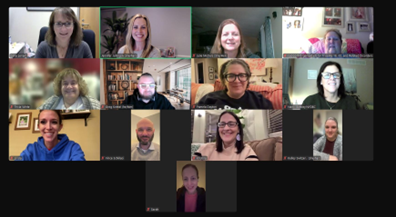 UR Medicine Golisano Children’s Hospital is located in Rochester, New York. Its Pediatric Family Advisory Council (PFAC) has been meeting monthly for almost 20 years. In recent years, meetings are held over Zoom. The virtual format seems to work for this council. Among the issues and projects that the PFAC members have worked on recently are the Rapid Response info graphic, Home Care video script, how to find out about resources in the community, an Emergency Department redesign, and a mission statement requested by our Pediatrician-in-Chief. Participants must sign a HIPAA form. They are offered the opportunity to attend unconscious bias training. Currently a handbook for the Family Advisor role is being created.
UR Medicine Golisano Children’s Hospital is located in Rochester, New York. Its Pediatric Family Advisory Council (PFAC) has been meeting monthly for almost 20 years. In recent years, meetings are held over Zoom. The virtual format seems to work for this council. Among the issues and projects that the PFAC members have worked on recently are the Rapid Response info graphic, Home Care video script, how to find out about resources in the community, an Emergency Department redesign, and a mission statement requested by our Pediatrician-in-Chief. Participants must sign a HIPAA form. They are offered the opportunity to attend unconscious bias training. Currently a handbook for the Family Advisor role is being created.
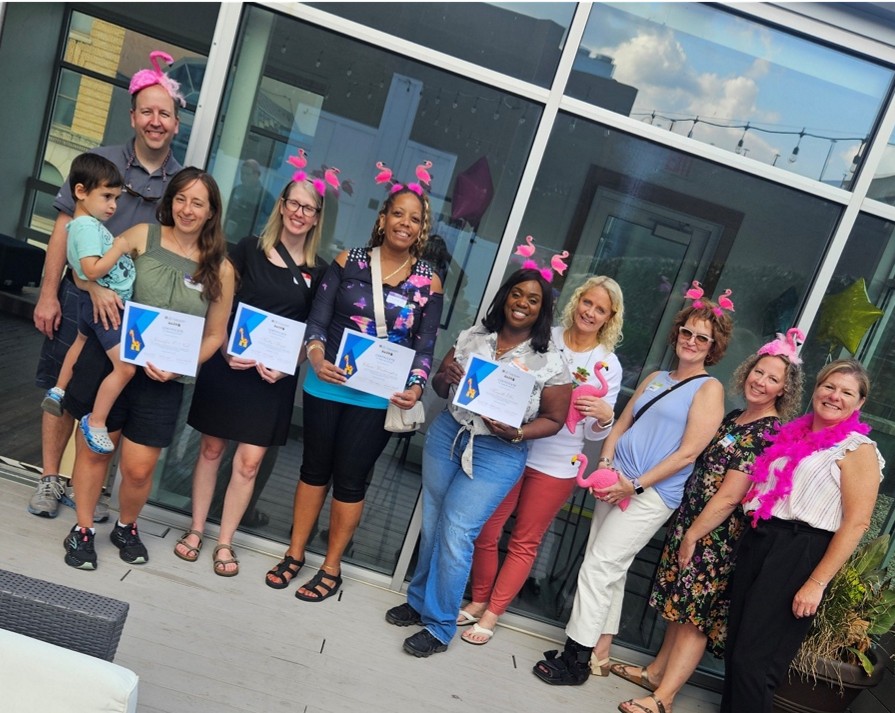 Golisano Children’s Hospital has a robust Family Connection Program that supports Family Advisors’ involvement in many ways: partnering with health care professionals, providing peer support to other families, or sharing their family’s hospital story with the public. One example is the Feeding Tube Buddy Program that virtually links caregivers who have a child getting a new feeding tube (Mentee) with caregivers who have experience with caring for a child with a feeding tube at home (Mentor). The program has been funded in part by a Health Equity NICU Follow through Grant from the Vermont Oxford Network. Mentors must take empathetic listening training and HIPAA training, and they are offered the opportunity to attend unconscious bias training. Mentors routinely check in with a Program Coordinator about how the Buddy match is going. Mentees fill out a survey at the end of the match with their feedback. Mentor families gather at least once a year to celebrate the program and meet each other in person. The program has been presented at national meetings such as Pediatric Academic Societies (pictured) and published in the Journal of Pediatric Surgical Research.
Golisano Children’s Hospital has a robust Family Connection Program that supports Family Advisors’ involvement in many ways: partnering with health care professionals, providing peer support to other families, or sharing their family’s hospital story with the public. One example is the Feeding Tube Buddy Program that virtually links caregivers who have a child getting a new feeding tube (Mentee) with caregivers who have experience with caring for a child with a feeding tube at home (Mentor). The program has been funded in part by a Health Equity NICU Follow through Grant from the Vermont Oxford Network. Mentors must take empathetic listening training and HIPAA training, and they are offered the opportunity to attend unconscious bias training. Mentors routinely check in with a Program Coordinator about how the Buddy match is going. Mentees fill out a survey at the end of the match with their feedback. Mentor families gather at least once a year to celebrate the program and meet each other in person. The program has been presented at national meetings such as Pediatric Academic Societies (pictured) and published in the Journal of Pediatric Surgical Research.
Golisano Children’s also has Family Advisors who provide peer support at the bedside in the NICU, and hopefully soon on other units as well. The Advisors host family dinner nights on the unit, scrapbooking events, and a NICU graduate dad who routinely hosts “Donuts with Dad” on the unit to connect with other fathers. Family Advisors who volunteer on-site must do the same training as Buddy Mentors as well as complete health appointments through the hospital’s employee health department.
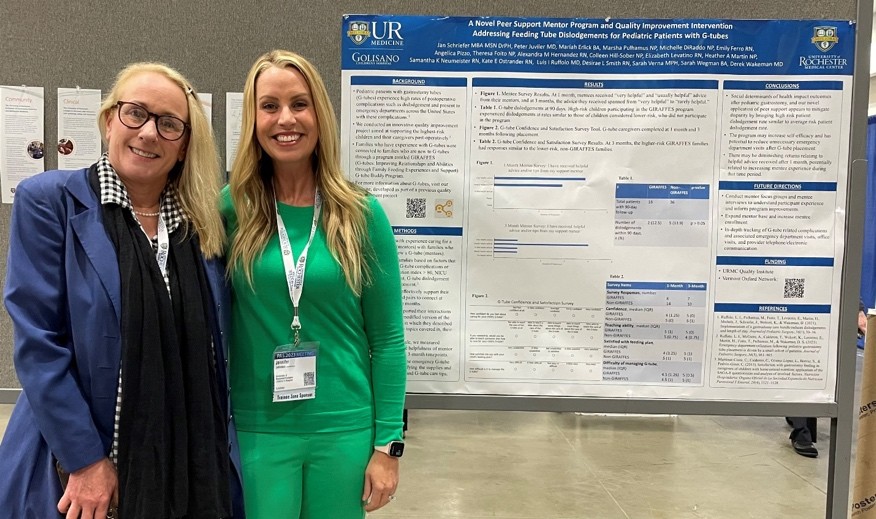 Another opportunity is being a Quality Improvement Family Advisor. The Golisano quality improvement teams are constantly evaluating the way things are done to ensure the best outcomes and care. Adding Family Advisors with lived experience to the team evaluating the topic ensures that the patient and family perspective is included. The team is asked if they are truly open to hearing the insights and perspectives of Family Advisors and if they are organized to include participants who are not hospital employees. Both the team and the Family Advisors are prepared for this partnership. The Family Advisors must take HIPAA training, read a handbook written specifically for this role with tips for sharing and what to expect at meetings. Unconscious bias training is also offered. The Family Advisors, the lead of the QI team and the head of the Family Connection Program then all meet to go over expectations before the Family Advisor officially joins the team. The hope is the Family Advisors not only participate on the committees, but perhaps co-lead them and/or publish/present with the team.
Another opportunity is being a Quality Improvement Family Advisor. The Golisano quality improvement teams are constantly evaluating the way things are done to ensure the best outcomes and care. Adding Family Advisors with lived experience to the team evaluating the topic ensures that the patient and family perspective is included. The team is asked if they are truly open to hearing the insights and perspectives of Family Advisors and if they are organized to include participants who are not hospital employees. Both the team and the Family Advisors are prepared for this partnership. The Family Advisors must take HIPAA training, read a handbook written specifically for this role with tips for sharing and what to expect at meetings. Unconscious bias training is also offered. The Family Advisors, the lead of the QI team and the head of the Family Connection Program then all meet to go over expectations before the Family Advisor officially joins the team. The hope is the Family Advisors not only participate on the committees, but perhaps co-lead them and/or publish/present with the team.
How is the Golisano Children’s Hospital Family Advisor work measured?
- Family Advisors complete time sheets to track their hours.
- A Family Advisor satisfaction survey is sent once a year to obtain information about how Golisano can improve their experience.
- Family Advisors serve as co-authors on peer reviewed posters and publications.